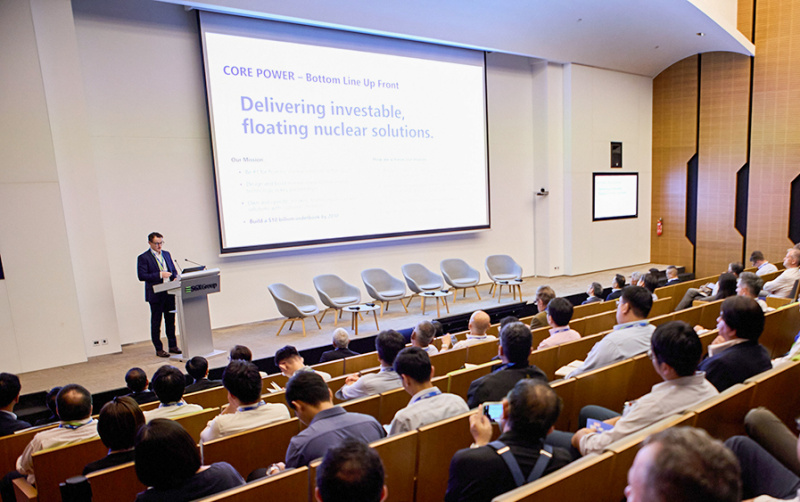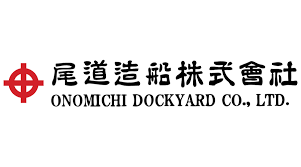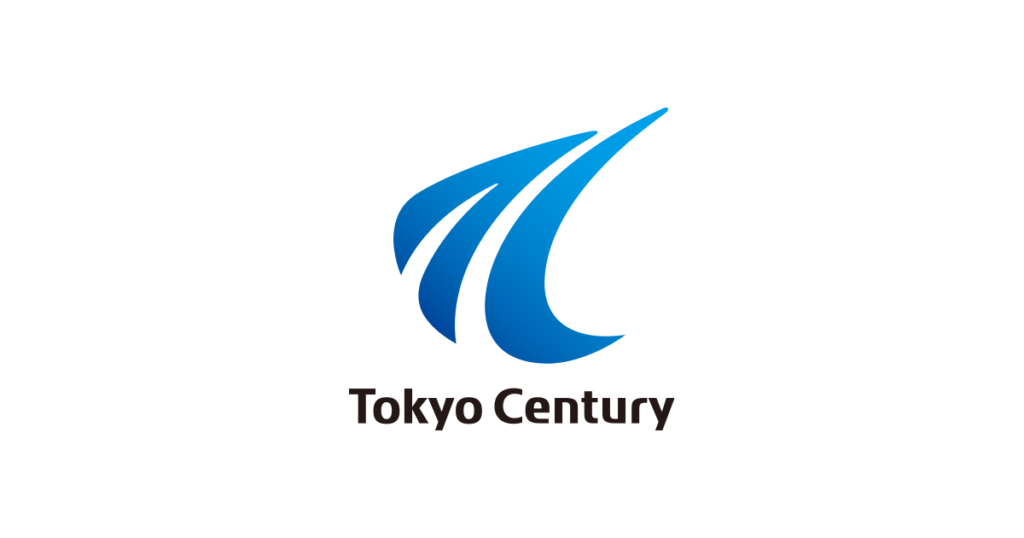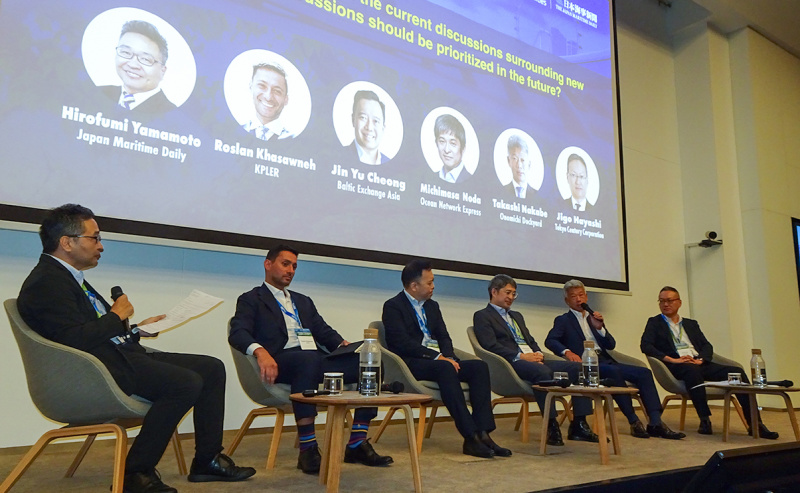On September 16, 2024, The Japan Maritime Daily and the Singapore Exchange (SGX) co-hosted a seminar titled “The Future of Shipping with Alternative Fuels” at the SGX Global Headquarters in Singapore. Thomas Davies, Director of Analytics at the UK-based nuclear engineering service provider CORE POWER (headquartered in London), delivered the keynote speech, asserting to an audience of over 120 attendees that “advanced nuclear technology will play a crucial role in achieving net-zero emissions in the shipping industry.” He further highlighted that the “Molten Salt Reactor (MSR)” stands out as a technology particularly suited for maritime use.
I participated as the moderator for this seminar.
The event attracted over 120 participants, including shipowners and operators, ship management companies, shipbuilders, maritime companies, brokers, and financial institutions from both Singapore and Japan. The seminar was sponsored by ClassNK, TMI Associates, and AXSMarine.
(Text by Hiro Yamamoto)
Photo courtesy of CORE POWER, SGX, MPA, Kpler, ONE, Baltic Exchange, Tokyo Century, Onomichi Dockyard, ClassNK, TMI Associates, AXSMarine.

■SGX and Core Power Deliver Keynote Addresses
William Chin, Executive Director and Head of Commodities at SGX, declared the seminar open. Following this, Thomas Davies took the stage to discuss the application of next-generation nuclear reactors in maritime contexts. He noted that these reactors could be used not only for propulsion systems on large vessels but also to power floating nuclear plants that could produce alternative fuels like methanol and ammonia.
Davies emphasized the advantages of the Molten Salt Reactor (MSR), stating that it meets three key criteria for success in maritime use: low pressure, long fuel cycles, and passive safety—technology that minimizes risks to humans in case of an emergency.

He explained the challenges of conventional Light Water Reactor (LWR) technology, noting that such reactors operate under high pressure and require a large Emergency Planning Zone (EPZ) around them in case of accidents, making them commercially uninsurable.
In contrast, Davies highlighted that MSRs operate at low pressure, which allows the EPZ to be minimized in case of accidents. He also introduced the Molten Chloride Fast Reactor (MCFR) project, in which CORE POWER is involved.
During the Q&A session, a participant asked when the first commercial application of the technology might be expected, assuming its initial use would be for power generation in near-shore areas. Davies responded that deployment is anticipated between 2030 and 2035.
In addition, the seminar featured presentations by Jasmin Tan, Senior Deputy Director at the Maritime and Port Authority of Singapore (MPA); Kenneth Ng, Director at SGX; and Yasushi Seto, Managing Director of ClassNK Singapore.

The seminar, co-hosted by Japan Maritime Daily and SGX, moved into its second part with a panel discussion moderated by Hirofumi Yamamoto. The panelists included Roslan Khasawneh, Lead Analyst at European data analytics firm Kpler; Takashi Nakabe, President of Onomichi Dockyard; Michimasa Noda, Senior Vice President of Ocean Network Express (ONE); Jigo Hayashi, from the Ship Finance Department at Tokyo Century; and Jin Yu Cheong, Head of Asia for the Baltic Exchange. The discussion focused on alternative fuels, including nuclear energy, with each panelist offering insights from their respective fields.
■Nuclear Energy as the Trump Card for Net Zero
During the panel discussion, we explored the potential for ships powered by nuclear energy, which is seen as a potential “trump card” in achieving the International Maritime Organization’s (IMO) goal of zero greenhouse gas (GHG) emissions by around 2050.

Speaking from the perspective of a global container shipping operator, Michimasa Noda noted that while there hasn’t been detailed discussion on nuclear-powered ships yet, “container ships, given their relatively large size and fixed routes such as Asia–Europe, could be one of the suitable sectors for nuclear energy use.” He acknowledged nuclear energy as a strong candidate for achieving net zero.
Roslan Khasawneh from Kpler presented an estimate that if nuclear energy were adopted by the top 10% of the world’s largest ships, “it would reduce 70% of GHG emissions from the maritime industry.” However, Khasawneh pointed out the challenges, noting that it is “questionable whether the remaining 90% of the fleet, including Medium Range (MR) tankers, could accommodate nuclear energy.” He also projected that both conventional fuels like LNG (Liquefied Natural Gas) and new fuels such as green methanol and green ammonia will continue to hold a significant share for the foreseeable future.

■Floating Nuclear Power Plants
Takashi Nakabe of Onomichi Dockyard spoke about the importance of establishing floating data centers and floating nuclear power plants near Tokyo, in light of rising future electricity demands.
Onomichi Dockyard has invested in CORE POWER, a UK-based nuclear engineering service provider. Nakabe pointed out that although offshore wind and solar projects are progressing in regions such as Tohoku and Kyushu, delivering renewable energy from these regions to the metropolitan area might involve “potentially enormous costs for laying submarine cables and other infrastructure.” He suggested that placing floating nuclear power plants near major cities could be a solution for future energy needs.

■Interest from Greek Shipowners
Jigo Hayashi from Tokyo Century was asked about the financing possibilities for shipowners if nuclear-powered ships were to be newly built. He responded, “This is a completely new frontier for us, and the answer is yes. But strictly speaking, from the perspective of traditional Japanese finance, there would be many challenges. Traditional debt and equity finance models require stable cash flow and proven technology.”

Hayashi also noted that for the unprecedented step of operating ships on nuclear energy, “venture capital-like investment will be necessary.” He added, “We are ready to support such efforts.”
Additionally, he mentioned that there is growing interest among Greek shipowners in nuclear energy.
Market Impacts of Nuclear Energy Ships
Jin Yu Cheong from the Baltic Exchange Asia discussed the potential impact on the shipping market if nuclear-powered vessels were introduced.
Cheong observed, “The absence of CO₂ emissions and the propulsion advantages of nuclear energy seem like an excellent approach. If we can develop indices reflecting those aspects, the world would certainly become brighter and greener.” However, he also referenced the introduction of IMO’s 2020 SOx (sulfur oxide) emission regulations, explaining, “That was just four years ago, but since then, things have progressed rapidly.” He further pointed out that the shipping market is becoming increasingly complex.

〆シンガポールで「新燃料」「原子力推進機関」についてセミナーが開催された。私はモデレーターとして参加した。
日本海事新聞社とシンガポール証券取引所(SGX)は2024年9月16日、シンガポール証券取引所グローバル・ヘッドクオーター(SGX Global Headquarters)で次世代の船舶燃料をテーマとする「The Future of Shipping with Alternative Fuels」セミナーを共同開催した。基調講演で登壇した原子力エンジニアリングサービスを手掛ける英コア・パワー(CORE POWER、本社・ロンドン)のトーマス・デイビーズ取締役(Thomas Davies、Director of Analytics at CORE POWER)は、海運のネットゼロ達成に向けて「高度な原子力技術が重要な役割を果たす」と120人を超える聴衆に主張した。彼はさらに「海上使用に適した技術として際立っているのが『溶融塩炉(Molten Salt Reactor, MSR)』だ」と強調した。今回、私はモデレーターとして参加した。
(Text by Hiro Yamamoto)
Photo courtesy= CORE POWER、SGX 、MPA、Kpler, ONE, BalticExchane, Tokyo century,Onomichi Dockyard, ClassNK, TMI Associates, AXSMarine
今回のセミナーにはシンガポールや日系の船主、オペレーター(運航船社)、船舶管理会社、造船所、舶用企業、ブローカー、金融機関の関係者ら120人超が参加した。
スポンサー企業とししてClassNK, TMI Associates, AXSMarineが今回のセミナーをサポートした。

■SGX, CorePowerが基調講演
SGXエグゼクティブディレクターのウィリアム・チン(William Chin、Head of Commodities)氏が開会を宣言した。続いて登壇したデイビーズ(Davies)氏は、海上における次世代原子炉の活用について、「大型船の推進システムだけでなく、浮体式原子力発電所の電源を活用してメタノールやアンモニアなどの代替燃料を製造できる」と展望を語った。
さらに彼は、溶融塩炉について「船舶での成功のための三つの評価基準として『低圧』『長い燃料サイクル』『パッシブセーフティー』(異常事態に人体などへの影響を最小限に抑える技術)を満たしている」と優位点を強調した。
従来の軽水炉(Light Water Reactor, LWR)技術の原子炉の課題については「高圧下で運転され、事故発生時に備えて周囲に大規模な緊急時計画ゾーン(EPZ)が必要なため、商業的に保険をかけることができない」と説明した。
彼は溶融塩炉について、「低圧で運転され、事故発生時のEPZを最小限に抑えられる」とし、コア・パワーが開発に参画する「溶融塩高速炉(Molten Chloride Fast Reactor, MCFR)」プロジェクトを紹介した。

質疑応答では、参加者からの「近海域での発電がこの技術の最初の応用例になると仮定するが、実用化はいつごろか」という質問に対し、デイビーズ氏は「2030年から35年の間の展開を検討している」と答えた。
このほか、セミナーではシンガポール海事港湾庁(MPA)上級副ディレクターのジャスミン・タン(Jasmin Tan)氏、SGXディレクターのケネス・ウン(Kenneth Ng)氏、日本海事協会シンガポールの脊戸康吏(Yasushi Seto)マネジングディレクターらが講演した。
日本海事新聞社(Japan Maritime Daily)とシンガポール証券取引所(SGX)共催のセミナーは第2部でパネルディスカッションへと移った。山本裕史(Hirofumi Yamamoto)をモデレーターに、欧州のデータ分析大手ケプラー(Kpler)のロスラン・カサオネ(Roslan Khasawneh)主席アナリスト、尾道造船(Onomichi Dockyard)の中部隆(Takashi Nakabe)社長、オーシャンネットワークエクスプレス(ONE)の野田道政(Michimasa Noda)シニアバイスプレジデント、東京センチュリー船舶営業部の林治剛(Jigo Hayashi)氏、バルチック海運取引所アジアのジン・ユ・チョン(Jin Yu Cheong)代表らが登壇した。我々は原子力エネルギーを含めた新燃料について討論し、各パネリストはそれぞれの見地から回答した。

■ネットゼロの切り札
パネルディスカッションで、我々はIMO(国際海事機関)の掲げる「2050年ごろまでのGHG(温室効果ガス)排出ゼロ」を目指す上で「切り札」とも目されている原子力エネルギーを燃料・動力源とする船舶の可能性などについて語り合った。
世界的なコンテナ船の運航会社の立場から、野田(Noda)氏は原子力エネルギー船について、「実際には、詳細な議論には入っていない」とした上で、「コンテナ船は、船のサイズが比較的大きく、アジア―欧州など決まった航路を航行することを考慮すると、(原子力エネルギー利用の)適切な船舶セクターの一つであるとは理解している」と話した。彼は原子力エネルギーについて、ネットゼロを達成する上での有力な候補の一つとの認識を示した。
ケプラー(Kpler)のカサオネ(Khasawneh)氏は「世界で船型の大きい上位10%の船舶で原子力エネルギーが動力源として採用されるならば、海事産業からのGHG排出量の70%は削減されるだろう」との試算を紹介した。一方で、カサオネ(Khasawneh)氏は「MR(ミディアムレンジ)型のタンカーなどを含めて残り90%の船隊が原子力エネルギーに対応できるかは疑問だ」という客観的な見地から冷静に事実を説明した。その上で、カサオネ(Khasawneh)氏は「LNG(液化天然ガス)などの従来型の燃料も、グリーンメタノールやグリーンアンモニアのような新燃料も当面、重要なシェアを占めるだろう」と予想した。
■浮体式原発
尾道造船の中部氏は、東京近隣でのフローティングデータセンター、浮体式原子力発電所の整備などの重要性、将来の電力需要の高まりについて語った。
尾道造船は、原子力エンジニアリングサービスを手掛ける英コア・パワーに出資している。
中部(Nakabe)氏は現在、東北、九州など地方で洋上風力発電や太陽光プロジェクトが進展しているものの、地方を経由して首都圏へ再エネ由来の電力を送るには「(海底ケーブルなどの敷設に)莫大なコストがかかる可能性がある」と指摘した。「そこで将来、大都市の近くに浮体式の原子力発電所を設置することが必要と考える」との見解を示した。
■ギリシャ船主も関心
東京センチュリーの林氏は、仮に原子力推進エンジンを搭載した船舶が新造発注される場合の船主へのファイナンスの可能性を問われ、「これはシンプルにわれわれにとって未知のフロンティアであり、(現時点の回答は)イエスだ。ただ厳密に見れば、日本の一般的な金融の視点からすると、多くの課題があるだろう。従来型のデットファイナンスやエクイティファイナンスにはキャッシュフローの安定性と、実証済みの技術が求
一方、彼は前例のない取り組みである原子力エネルギーによる船舶運航には、「ベンチャーキャピタルのような資本投入が必要だ」とも指摘した。その上で、「当社はそうした取り組みを支援する準備ができるだろう」と語った。
また、彼はギリシャ船主の中で原子力エネルギーに興味・関心を持つ動きが見られることも説明した。
原子力エネルギー船が海運市場に登場した場合の市況への影響については、バルチック海運取引所アジアのチョン氏が説明した。
バルチック海運取引所のチョン(Cheong)氏は、「CO₂(二酸化炭素)の排出がなく、原子力エネルギーによる推進は非常に優れた手法に思える。そうした点も反映した指標ができるならば、世界は明るくグリーンなものになるだろう」と見通した。一方で、彼はIMOの2020年のSOx(硫黄酸化物)排出規制導入時を振り返り、「これは4年前のことだが、同規制導入以降、物事は急速に進んでいる」と説明した。併せて、海運市況がより複雑化していることも指摘した。
